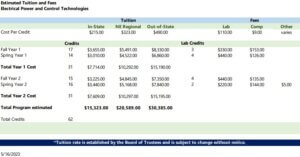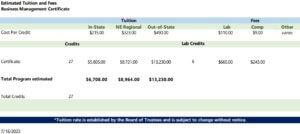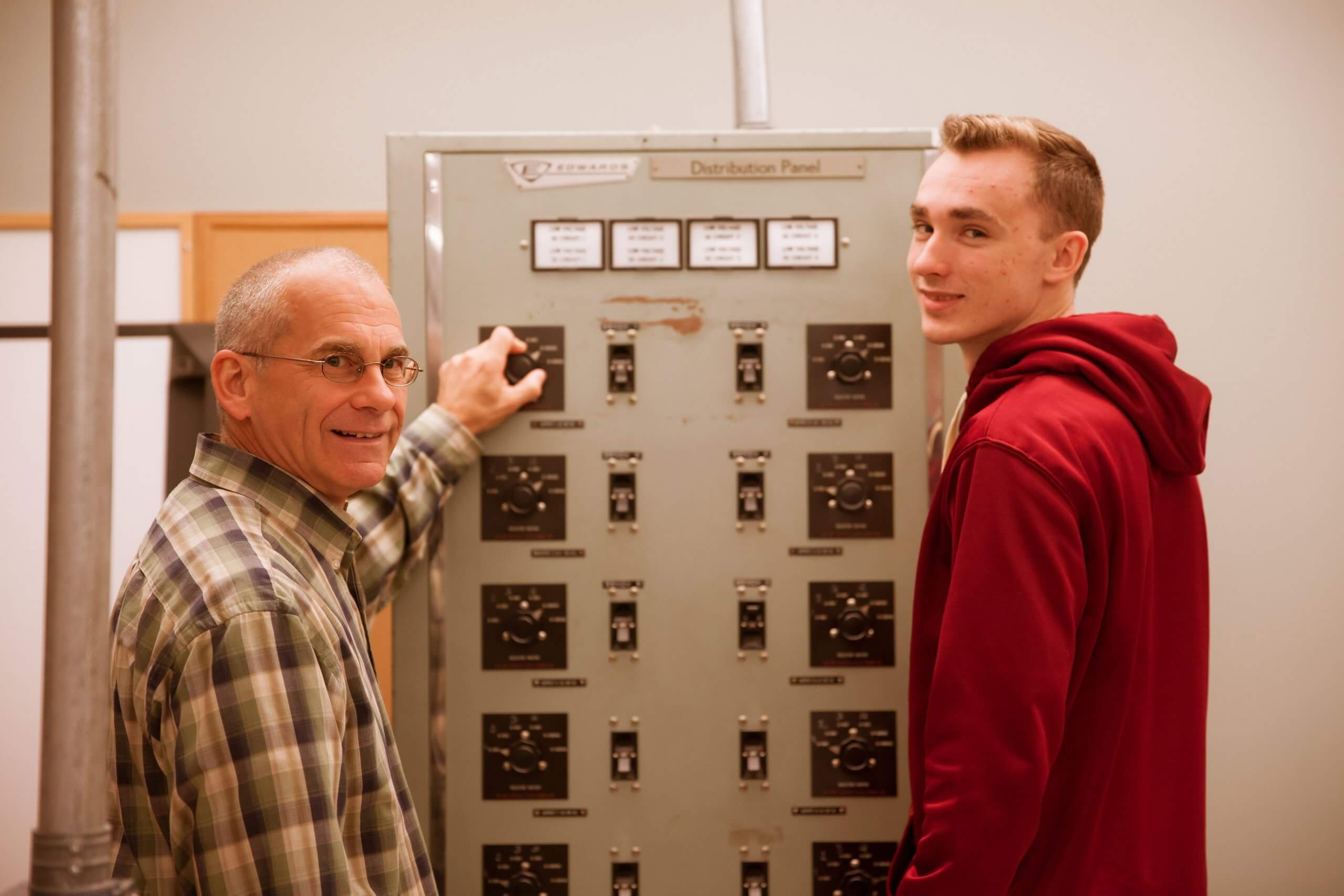Overview
The Electrical Power and Control Technologies (EPCT) degree program prepares students in the electrical industry and offers an ever-increasing number and variety of employment opportunities to qualified industrial electricians. Nationwide there is a high demand for industrial electricians. Students graduating from EPCT can expect entry-level employment with rapid upward mobility in construction, industrial electricity, electrical design, or electrical inspection. Completion of this program satisfies all the related education requirements for electrical licensing within the State of New Hampshire. New Hampshire license holders receive reciprocity with the States of Massachusetts, Vermont, and Maine.
Potential Jobs/Careers
- Electrician (After completion of NH State licensing requirements)
- Power Plant Operations
- Building Electrical Maintenance Technician
- Machine Electrical Maintenance Technician
- Renewable Energy Electrical Technician
Program Goals
The Electrical Power and Control Technologies (EPCT) degree program prepares students in the electrical industry and offers an ever-increasing number and variety of employment opportunities to qualified industrial electricians. Along with these opportunities come the responsibilities associated with one of today’s most sophisticated technologies. A well-grounded individual can expect entry-level employment with rapid upward mobility in construction, industrial electricity, electrical design, or electrical inspection. Successful completion of this program satisfies all the related education requirements for electrical licensing within the State of New Hampshire. New Hampshire license holders receive reciprocity with the States of Massachusetts, Vermont, and Maine.
Program Outcomes
- Demonstrate the mathematic skills necessary to solve electrical problems through the understanding of fractions and decimals, algebra, geometry, trigonometry, linear equations, roots, and practical applications of trigonometry, algebra, and geometry.
- Demonstrate proficiency in the understanding and applications of electrical theory including but not limited to Alternating Current (AC) circuits, Direct Current (DC) circuits, series circuits, parallel circuits, series/parallel circuits, voltage, current, resistance, impedance, and power.
- Have completed Occupational Safety and Health Administration’s (OSHA) 30-hour construction site safety certification for the Construction Industry and NFPA 70E training for safe electrical work protocols.
- Demonstrate proficiency in understanding and wiring electrical circuits including but not limited to residential, commercial, and industrial applications.
- Demonstrate proficiency in designing, troubleshooting, and installing electrical controls.
- Demonstrate an understanding of the operation and installation of Photovoltaic (PV) systems.
- Accumulate lab hours that count toward the work experience requirement as a licensed State of New Hampshire electrical apprentice.
- Demonstrate an in-depth understanding and application of the National Electric Code (NEC).
- Demonstrate proficiency in using takeoff skills and ConEst software to generate cost estimates for the purpose of generating work in the low bid market, as well as skills for successful project management.
- Demonstrate proficiency in the design, installation, programming and troubleshooting of Programmable Logic Controllers (PLCs) and their associated circuitry.
- Demonstrate an in-depth understanding of the theory of operation and troubleshooting of all types of AC and DC electric motors and generators.
- Demonstrate an in-depth understanding of all types and configurations of power transformers and the complex theory of phase relationship, power efficiency, and power transfer ratios.
- Demonstrate proficiency in the design, installation, electrical connections, and troubleshooting of complex electro-mechanical and solid state electrical control circuits and devices.
Total Credits: 3 Total Credits: 3 Total Credits: 3Course Sequencing
First Year
Second Year
Liberal Arts Elective
Social Science Elective
Humanities/Fine Arts/Foreign Language Elective
Course Sequencing
Certificate Requirements
In order to be successful in the ESIM or EPCT Program a student must:
- have command of the English language;
- have the ability to stand for extended periods of time and have the physical strength to lift components and equipment;
- be able to purchase the minimum required tools and textbooks;
- be able to complete requirements for college level classes;
- have a high school diploma or equivalent;
- be able to understand and follow both written and oral instructions;
- have communication skills sufficient to prepare required reports;
- have sufficient dexterity to perform manual skills;
- be able to distinguish various sounds and noises and read instructions for course materials and other manipulative tasks (adaptive equipment acceptable);
- have reading comprehension skills sufficient to read and comprehend service literature.

Keith Fletcher

Gary Romagnoli

Joseph Smith






